Genomics and Genetic Testing Overview: A Comprehensive List of Genomic Tests
Feb 10, 2020
26595 Views
Genomics is the analysis of your genome, your unique DNA sequence that governs your health, habits, metabolism, physiology, and psyche. Advances in technology have made it possible to read the whole or parts of an individual’s DNA sequence. Experts analyse the DNA for variants at specific locations that can affect health and well-being. This information can be used to predict risk for a particular disease, to diagnose a condition, to optimize treatment, to find out about your roots, or to move to a healthy lifestyle!
Not all genomic tests are the same
What are genetic tests or genomic tests?
Genetic tests analyse the DNA. Genetic tests can not only confirm or rule out diagnosis of disease, but also determine the chances of being affected by a disease later in life or passing on the abnormal genes to the progeny. There are different ways to analyse the DNA — the method is determined by the purpose of analysis. Common methods include:
- Molecular testing to study single genes or various lengths of DNA for mutations and variants
- Chromosomal tests study all the chromosomes for anomalies, including structural and numerical abnormalities. Advanced testing can also identify any chromosomal microdeletion/microduplications, copy number variation, loss of heterozygosity, and uniparental disomy.
- Biochemical tests that study the proteins coded by genes
- Whole Genome or Whole Exome Sequencing that analyse entirety or the entire coding region of the DNA
One must also remember that mutations or changes can be of two types — germline or somatic. Germline mutations are hereditary mutations that you receive from your ancestors and somatic mutations are those that you acquire over a lifetime. The former can only pass on to the cells that divide from the affected cell. Therefore, the test for germline or hereditary mutations needs to be done only once.
Why genetic or genomic tests
You or your doctor may decide on a genetic test for various reasons:
- To find your genetic risk for a disease, which can help you in preventing or delaying the onset of disease
- To find your risk of passing on some genetic conditions to your offspring
- To screen your baby or fetus
- To confirm a clinical diagnosis
- To understand disease biology and inheritance patterns
- To determine the best treatment and management plans for a disease
- To personalize your nutrition and fitness plans
- To understand your genetic roots and ancestry
- To understand what makes you unique and possibly eccentric

Types of genetic/genomic testing
There are many different types of genetic tests available today. Some are prescribed by clinicians, while others can be purchased over the counter. Broadly speaking, we can classify the genetic tests available today as follows:
Diagnostic testing
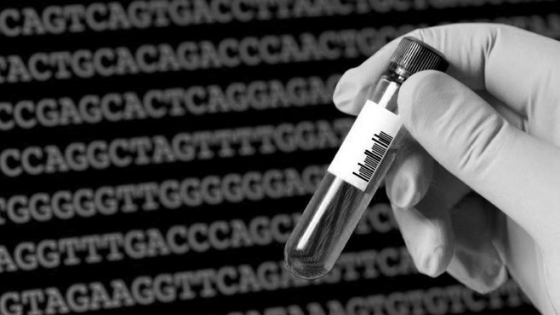
Clinicians prescribe genetic tests to confirm diagnosis when they suspect a specific condition, based on signs and symptoms. These tests aid clinicians in identifying or ruling out any gene mutation or chromosomal abnormalities. In addition to bringing closure in a patient’s diagnostic odyssey, these tests help in formulating management plans to treat diseases and to prevent or reduce complications where possible. In a few cases, a whole genome or exome sequencing is recommended to look for other differential diagnosis associated gene variants. By understanding the genetic association, physicians may also recommend similar tests to family members who are at risk.
Some of Mapmygenome’s tests in this category include Whole Exome Sequencing, Whole Genome Sequencing, and BRCA 1/2 Full Gene Sequencing.
Predictive genomics
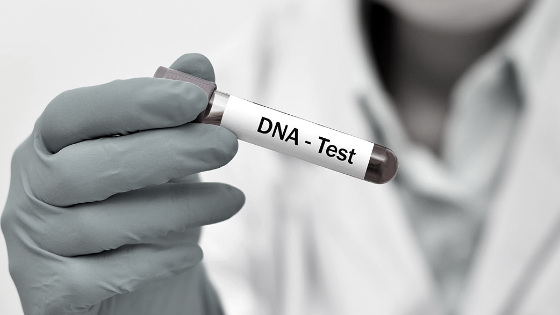
Predictive genomics are presymptomatic tests that can detect gene variants associated with conditions that can affect people later in life. Individuals can learn about their genetic risk for a specific disease before the appearance of signs and symptoms or even before the onset. For example, many forms of colorectal cancer, such as Lynch Syndrome and Familial Adenomatous Polyposis (FAP), are preventable and treatable. With predictive genetic testing, the causal mutations can be identified before tumorigenesis, enabling lifestyle interventions and better treatment plans.
These tests can also screen for common gene variants that increase an individual’s risk for disease and lifestyle disorders. These tests often do not require a clinician’s prescription – they can be purchased over the counter or online. For families with heritable risk for diseases such as type 2 diabetes, these tests in combination with genetic counseling can help in delaying or avoiding the disease altogether. Nutritionists, fitness trainers, and even sports training institutes are using genomics to improve performance and to minimize injury risk.
Some of Mapmygenome’s tests in this category include Genomepatri and Myfitgene.
Carrier screening Tests
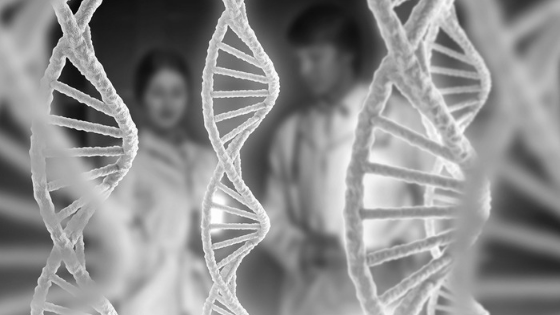
These genetic tests can help identify carriers of certain gene variants and mutations that can manifest as diseases in their offspring. These tests are useful to families and ethnic groups with increased risk for some genetic conditions such as sickle cell anaemia or cystic fibrosis. There are tests that screen a couple’s genes for a range of conditions. Parents can learn about their risks for having a child with a particular genetic condition.
Some of Mapmygenome’s tests include MatchMyGenome.
Preimplantation screening

Preimplantation Screening or Preimplantation Genetic Diagnosis is a specialized screening to reduce the risk of having a child with a specific genetic disorder. In assisted reproductive techniques such as in vitro fertilization (IVF), these tests can help in detecting genetic abnormalities in embryos. Following the test, embryos without the genetic abnormalities are implanted in the uterus, thus increasing the chances of having a healthy baby.
Prenatal screening

Prenatal Screening helps in ruling out common chromosomal aneuploidies in a fetus before birth. Parents can be aware of the risk of their baby having chromosomal defects. With this test, parents can go for further prenatal diagnosis and let go of uncertainty about pregnancy or make informed choices about the pregnancy. Prenatal screenings are noninvasive, such as Noninvasive Prenatal Testing (NIPT), which can screen high-risk pregnancies for common chromosomal aneuploidies like Down Syndrome, Edward Syndrome, and Patau syndrome.
Some of Mapmygenome’s tests include NIPT and NIPT Advanced (includes microdeletions).
Newborn Baby screening

Newborns are screened for metabolic disorders in order to improve their chances of recovery through early intervention. Babies are screened for common inborn errors of metabolism and genetic disorders such as sickle cell anaemia, phenylketonuria, and congenital hypothyroidism as a routine screening. Early treatment helps improve their quality of life.
Some of Mapmygenome’s tests include BabyMap Exome-based diagnostic testing for metabolic diseases in newborns.
Pharmacogenomics
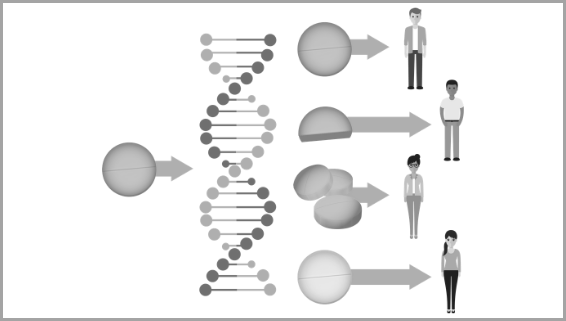
Pharmacogenomic tests determine an individual’s efficacy and toxicity for a particular drug. Doctors prescribe these drugs in order to determine the best treatment plan and optimum dosage in order to avoid side effects and wasted treatment time. These tests can be for a single drug such as Clopidogrel or for a large number of drugs.
Some of Mapmygenome’s tests include MedicaMap.
Tumour tissue DNA sequencing for cancer treatment

When someone is diagnosed with cancer, the treatment can be unique for each individual. Each patient has a unique combination of genetic changes. Genetic profiling or genetic testing is used to identify these unique DNA changes. Here, the tumor tissue from the affected area is tested to come up with a unique treatment protocol.
Ancestry testing

Many individuals are curious to know about their roots – where their ancestors came from, the migratory patterns, etc. These tests can also identify if an individual is descended from certain ethnic groups.
Mapmygenome offers ancestry testing on request as part of some of the packages.
Forensic testing
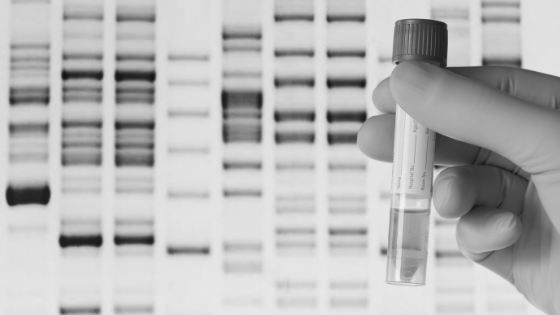
These tests look at the individual’s DNA for legal purposes – in crime suspects and disaster victims. DNA forensics can also help in establishing or ruling out kinship – maternity, paternity, sibling, etc. These are done in a certified lab only.
Risks of genetic testing
Genetic tests are typically noninvasive or minimally invasive, with little physical risk. There are, however, invasive tests during pregnancy — amniocentesis and chorionic villus sampling with an increased risk (0.5-1%) for pregnancy loss.
While genetic tests can provide a closure to a diagnostic odyssey, learning about the risk for a disease or the confirmation of a diagnosis is associated with emotional, social, and financial costs. It is always advisable to consult a doctor or genetic counsellor in cases linked with these costs.
Before going for a genomics test
Healthcare professionals recommend that individuals should understand their health history before opting for a genomic test. Consultation with a doctor or genomic counsellor can help in gaining better insights into the individual’s family history, medical history, and even lifestyle. This can help in preparing better for the test results, in devising mitigation plans, and in making informed choices.
Sometimes, when there is a genetic condition in the family, it is better to discuss with the family to understand the implications to all members.
Individuals with healthcare insurance often find out if the insurance provider covers the test costs.
The genomic testing process
The process itself is fairly simple, especially in noninvasive genetic testing.
Informed consent

Individuals are required to understand the procedure, limits, benefits, and possible risks. Informed consent is the process of educating the individuals and obtaining permission for conducting the genomic test. A genomic counsellor or healthcare provider explains the test. There is a standard form to read and sign before proceeding with the test. For minors, parents sign on the informed consent form.
Sample collection
Depending on the test, a sample such as blood, saliva, cheek swab, or tissue is collected.
- Blood sample is collected by a certified phlebotomist by inserting a needle into the vein of the arm.
- Cheek swabs are collected by individuals or their parents (of small children).
- Tissue samples are collected by healthcare professionals during certain procedures.
- Amniocentesis involves a medical expert inserting a needle through the mother’s abdominal wall and into the uterus to collect amniotic fluid.
- Chorionic villus sampling involves the collection of a tissue sample from the placenta.

Analysis and reporting
The samples are de-identified and sent to the lab for processing. Lab technicians extract the DNA and perform QC. If there is a viable amount of DNA, the DNA is analysed using specialised techniques. Following this, a report is generated, verified by authorised scientific team, and sent to the customer. The amount of time to generate the report depends on the type of test and the service provider.
Positive results can mean different things, depending on the type of genetic test:
- Diagnostic tests confirm the doctor’s diagnosis, bringing closure to the diagnostic odyssey and enabling the doctor to determine treatment plans.
- Presence of a specific gene variant or mutation in carrier screening can help determine if the progeny are likely to be carriers or affected, enabling informed choices for family planning.
- Predictive analytics can help in finding the risk for a disease. However, genetic predisposition does not confirm the disease. There are lifestyle and medical interventions that can help prevent or delay the onset of disease in many cases.
- Nutritionists and fitness experts use this information to personalize diet, fitness, and weight loss plans.
A negative result, on the other hand, is not a guarantee that an individual cannot have the disorder – now or in the future. For example, although healthcare providers recommend BRCA1 and BRCA2 gene testing for hereditary breast cancer, there are many without the affected genes, who develop breast cancer. Talking to a genomic counsellor can help in sorting out questions about negative results.
Sometimes, the results suggest variants of unknown significance. This means that healthcare providers and research experts cannot confirm if the genetic variation is harmless or disease-causing. Genomic counsellors may recommend follow-up tests to ensure prevention or to enable early intervention if required.
Genomic Counselling or Genetic Counseling
Genomic counsellors can help in interpreting the reports. They analyse the health history and correlate it with the report findings. This can help in giving insights into the risk findings and diagnosis, as well as in preparing mitigation and management plans.
Genomic Counsellors are experts recognised by National and International boards and professional societies. They can educate individuals about the disease risk as well as the inheritance patterns, information that can help the customers’ family members.
In conclusion
Genomic testing is a matter of choice — the results are personalized for you and the choice to undergo or avoid a genetic test is ultimately yours. Genetic tests are for different purposes and cover many aspects as we saw in this summary. The costs may seem a little more than traditional biochemical tests, but the benefits far outweigh the costs. One must remember that hereditary parts of the genome do not change throughout the lifespan, so we need to do the test only once in a lifetime. If in doubt, talk to a genomic counsellor.

